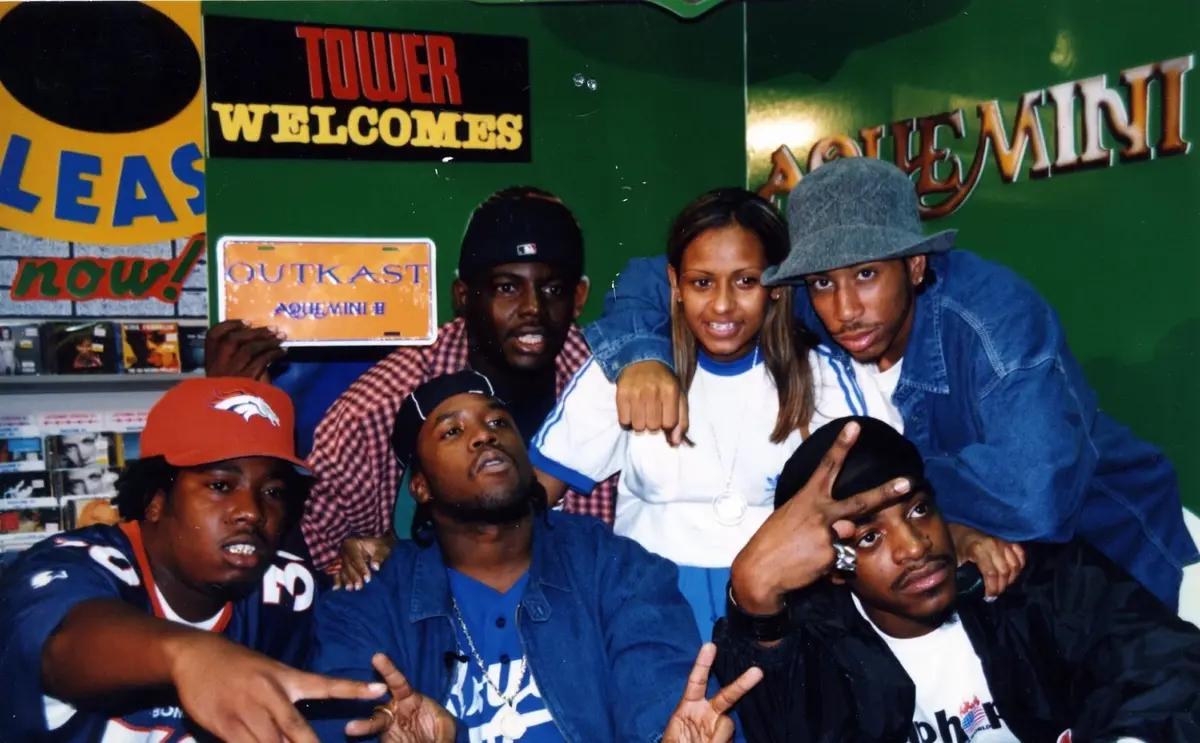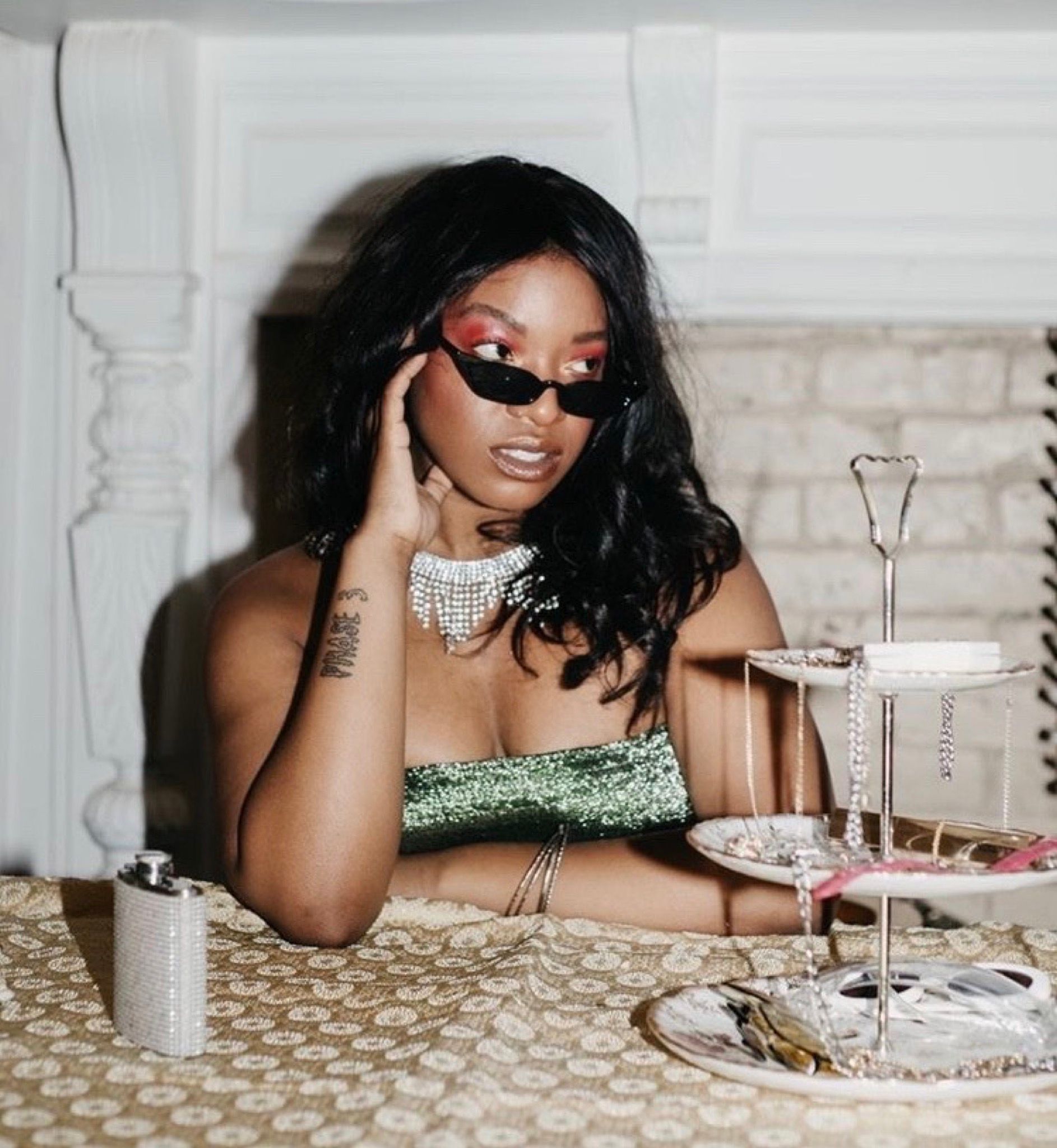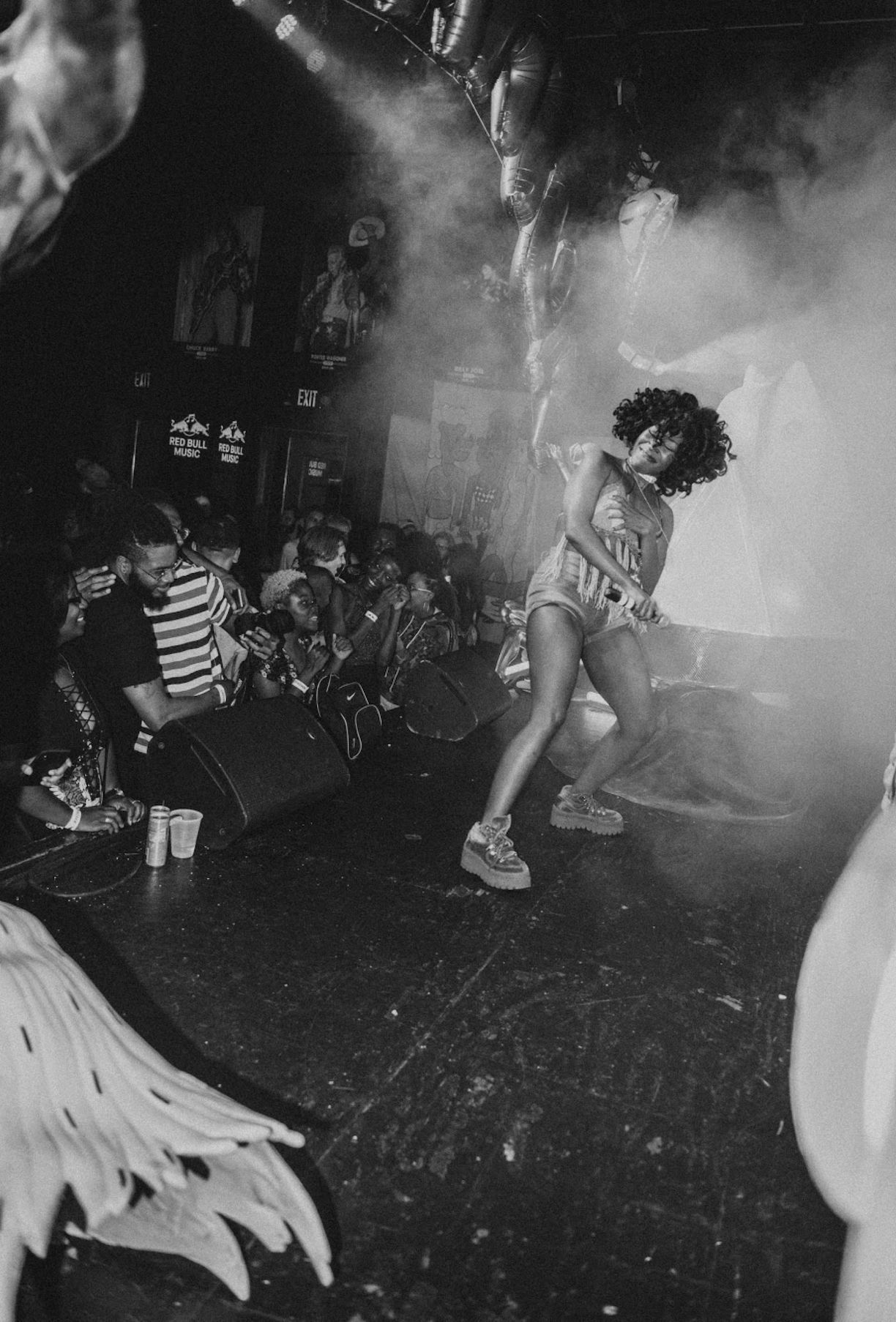The Evolution of BOSCO
|Jeffrey Martín
Out November 12, 2020, Car Therapy is the latest project from bi-coastal BOSCO, whose diaristic, lyrical work on albums such as b. and Some Day This Will All Make Sense Pitchfork has described as “crucial to the musical arc of Atlanta and the evolution of black music.” Released on the artist’s own SLUG Records, her new “therapeutic 4-track EP” is conceived as a soundtrack to escapism.
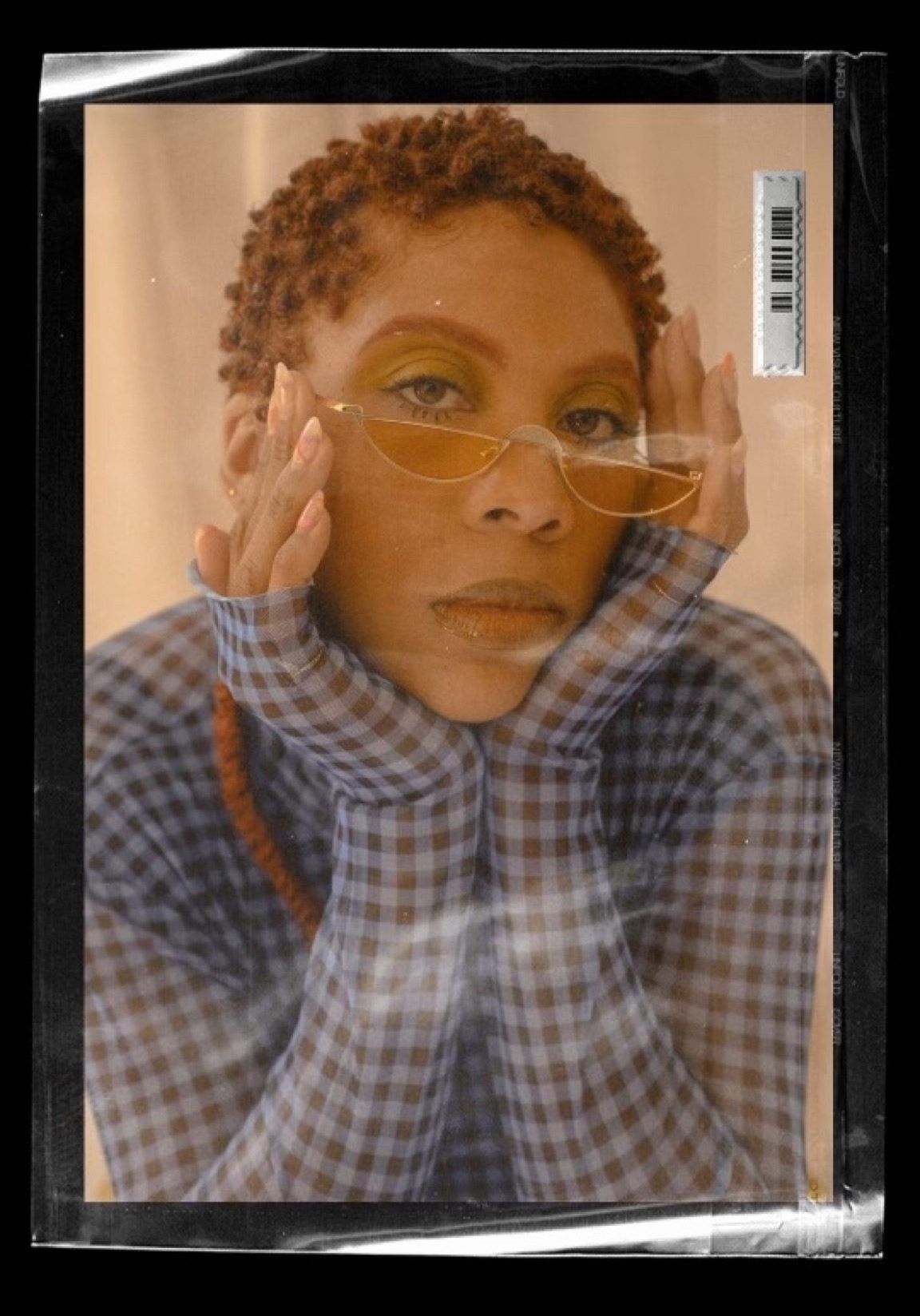
The multidisciplinary BOSCO – legal name Brittany Bosco – is an artist by training, but we know her through her music, gracing the soundtracks of HBO’s Insecure and Ava Duvernay’s Queen Sugar, and the mics at the ADULTSWIM Music Fest and Berlin’s COLORSXSTUDIOS. Also the founder of SLUG Agency, she’s built a platform for herself and others, growing as an artist and entrepreneur while navigating a world of social media analytics and ever changing industry trends.
BOSCO is from Savannah, Georgia, where she studied fashion at the Savannah College of Art and Design. At 19, she started spending time in Atlanta, where she found management and representation, learned the music industry ropes, and made her first EP, Boy. BOSCO worked with the late Speakerfoxxx on the collaborative Girls in the Yard, and was mentored by Fadia Kader, currently head of music partnerships at Instagram. You don’t need anyone in this industry to make things happen,” BOSCO says of what Kader taught her. “You gotta be able to do it for yourself.” That takeaway is at the core of SLUG Agency, which BOSCO founded in 2016 to educate and advocate for an emerging generation seeking new employment models and support outside of the establishment.
When photographer Wynton Harvey shot BOSCO ahead of release of her new album, Car Therapy, she was bold and radiant as she posed to track after track of Tyler The Creator’s Flower Boy. After a couple of Zooms, it was my first in-person meet with the new mother, who welcomed her son Arlo a few months ago. “You just a girl who likes to eat crab legs,” BOSCO says of her persona, mimicking her own mom. A classic Capricorn, BOSCO is in tune with enterprises and commerce – and at home with success. “We don’t play about coin,” she says of our shared sign. “We are sooo into a task list, and being a mom is helping me unlearn that.” Caps are also known to love very hard. I feel Speakerfoxxx around me whenever I smell Tom Ford,” she says of the Atlanta producer, who passed in 2018. “I miss her. We used to live together, and grieving her was so tough.” Still, BOSCO is about evolution – even at a time when we have all slowed down.
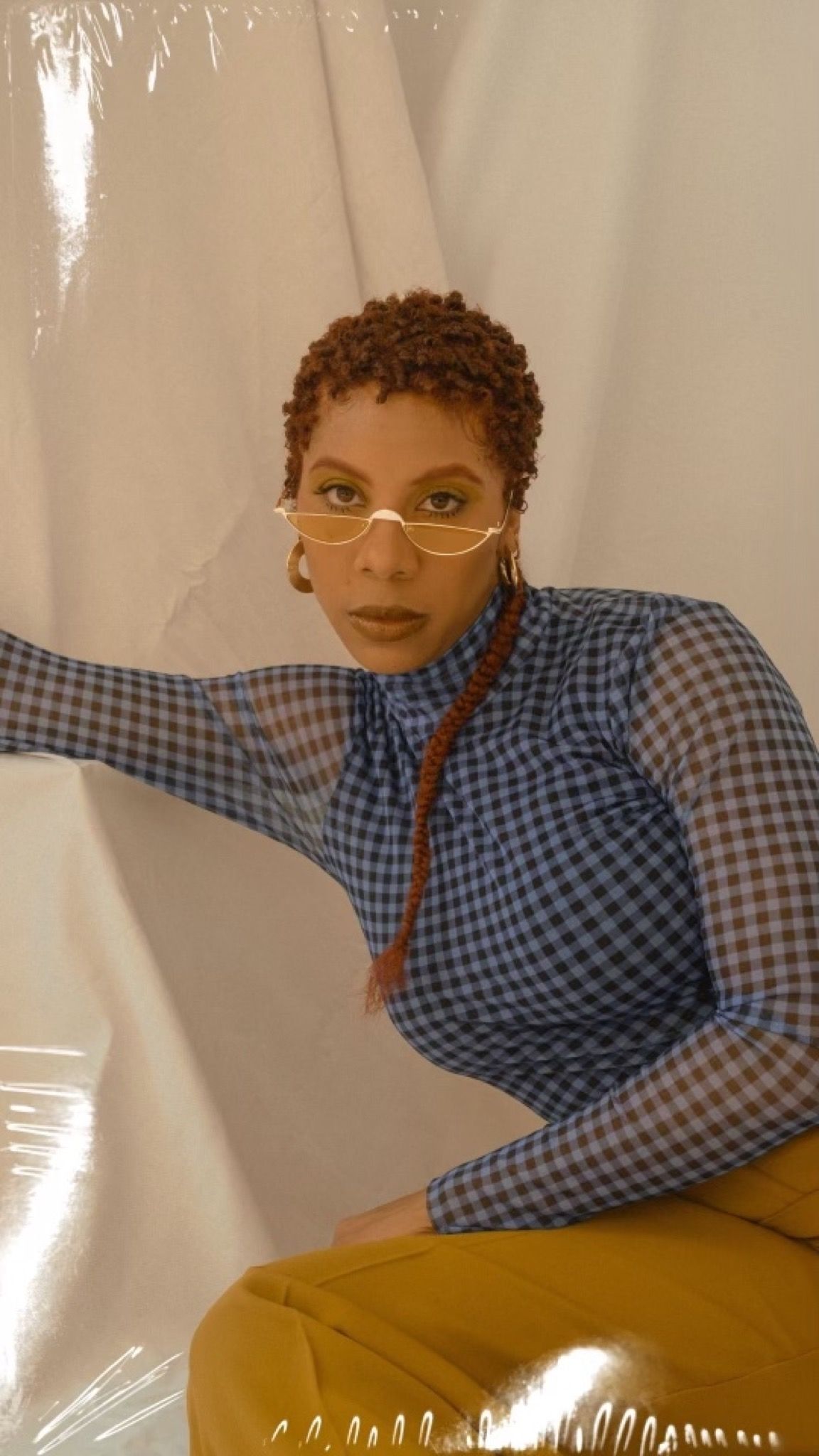
Who are your musical and creative inspirations: past, present, and future?
I mean, Pharrell is the blueprint – how he started his career and how he’s able to be a producer, a fashion designer, an anthropologist, a mogul. He’s very aware of political issues. He’s able to be the artist that puts on other people and sees talent in folks. I just love how he has diversified his career in the different spaces he’s able to occupy. Brandy, of course – and not because she’s trending now. She is the archetype. I grew up listening to her. She was my first idol. The Never Say Never tour in D.C. was my first real concert. She taught me so much vocally and in her career. I think she really exuded the first format of multimedia artist, and people don’t give her enough credit for that – doing Maybelline campaigns, going from theater to having her own show, to starring on the big screen, while also making multi-platinum albums.
I would also say, my mom and my aunts. They were the first people that put me on different types of music. I have one aunt, who I call my “alternative aunt,” because she put me onto country music when I was like eight. She introduced me to Shania Twain. Mom is a church person, so she put me onto Pattie LaBelle. The melting pot of these different influences helped mold and craft me sonically and visually.
Who would be your entrepreneurial mentor – who helped and inspired you to do what you’re doing now with projects like SLUG Agency?
They’re not famous people, but they’re people in my life like Fadia Kader, who was my manager when I first started. I had literally just moved to Atlanta from Savannah, and she discovered me at Lenny’s Bar like four months later and kind of put me under her wing. That’s how I first got thrown into the industry. I didn’t know shit about shit – I was so green. I owe a lot of my career and entrepreneurial skill to her because she invested in me so early, supporting me whether I wanted to do music, agency stuff, or art stuff. She always told me “I want you to have all of the skill sets you need, so that you don’t have to depend on anybody.”
“I think I’m stronger when I’m able to give visibility to the whole team behind a certain vision.”
Thinking about the depth of these relationships you have had, I know you were also very close to Speakerfoxxx. Do you still feel her presence, in your day-to-day or in your work?
She used to speak to me a lot the first year of her passing. I really don’t talk about it much, because it’s a very sacred part of my life. She used to speak to me in songs – when I would go on a walk or be in an Uber or at someone’s house, a song would come on. It’s a situation that took me a long time to heal from. I didn’t come to Atlanta for a year after she died because everything reminded me of her. Our group was an outlet for me – it got me out of my comfort zone to explore different genres. And I was looking forward to seeing her next steps and the futures of both our careers. We worked so hard to get where we were, individually, and it was so magical when we would come together she had what I needed, and vice versa. It’s so disheartening to see not just [Christen] Nilan, but so many young musicians – Juice Wrld, Mac Miller, and so many people – dying from substance abuse in the industry.
Thank you for being vulnerable about that. Speaking of transitions, you recently added another title to the many things you do. How is being a mom?
Shit, I’m still figuring it out every day. Being a mom has really softened me in a way I didn’t know I needed. The space of vulnerability I’m in right now is revealing a large part of myself, even when it comes to my work. I think the season I’m in currently is “surrender”: surrender of my will, surrender to this space in my life, surrender what I thought my career was going to be like, surrender to the newness of everything. Being that Capricorn, I try to plan everything out to the T so now I’m like, “Oh my God, where is the structure??”
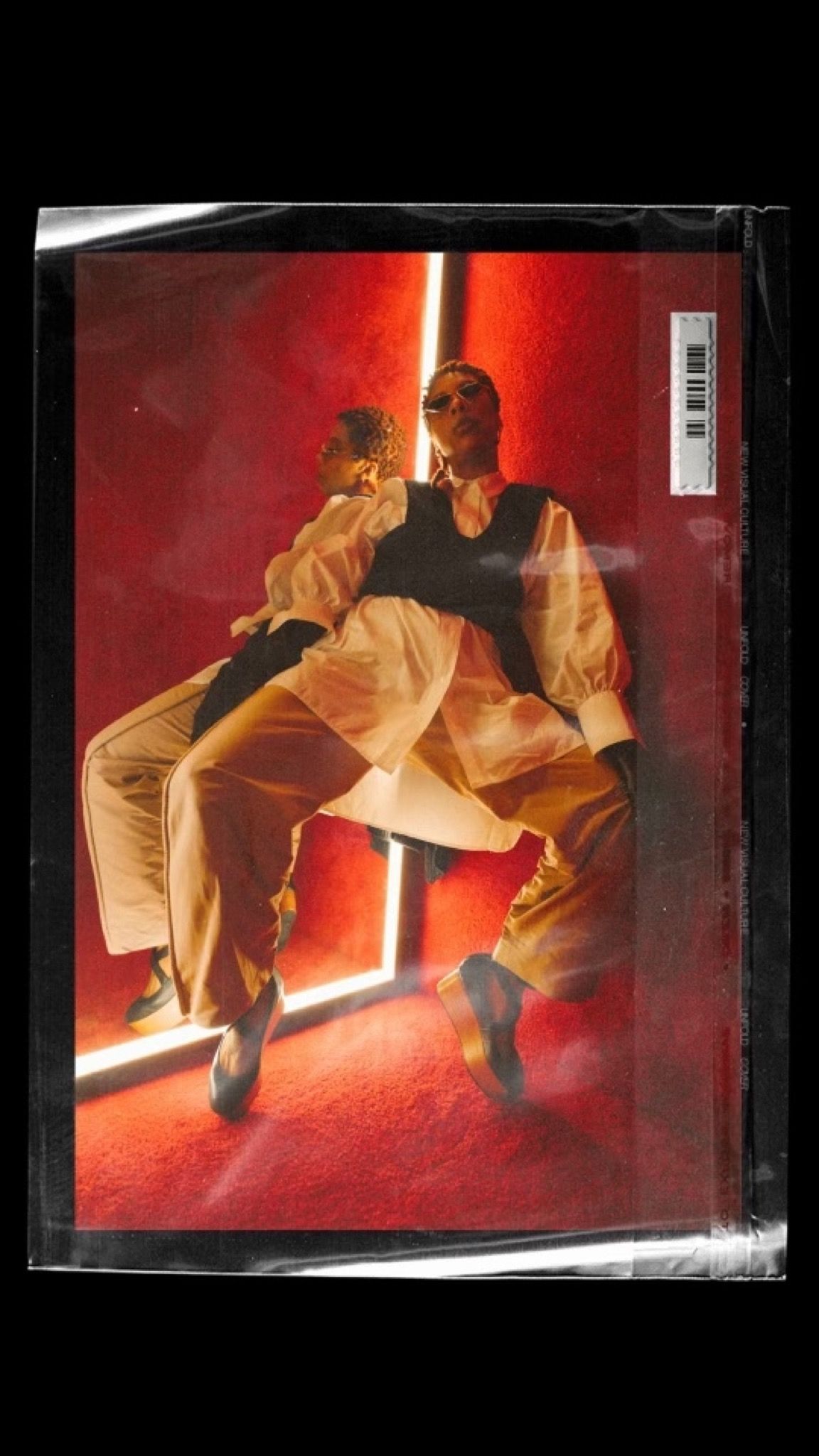
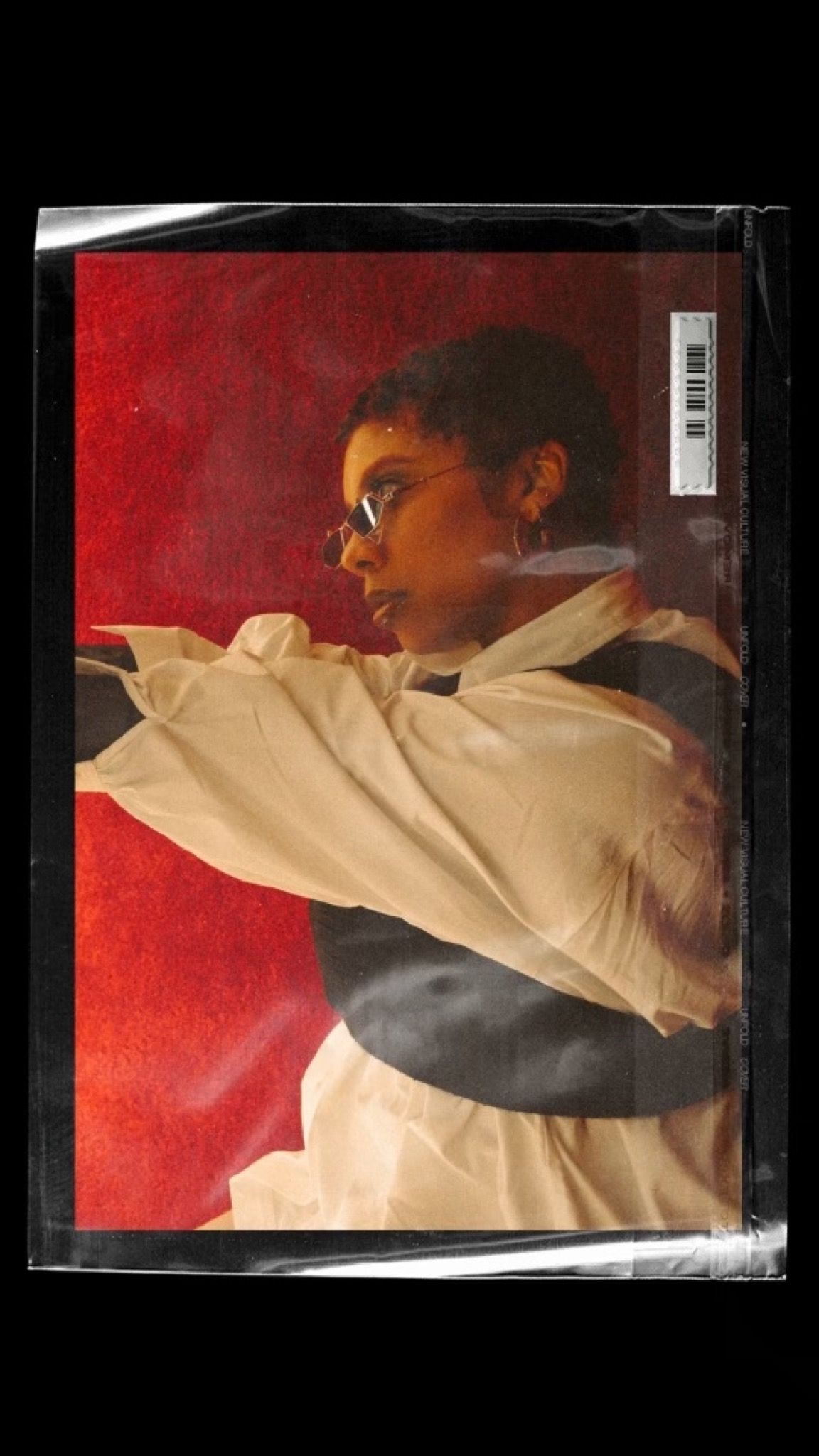
I’m laughing with you, not at you!
“Where’s the structure?! Structure!! I need security!” Being a mom, that shit go out the window. I’m learning I have to yield myself – I just have to – and be okay with surrendering to this moment and working around it. I’m grateful he is here. But honestly, I wasn’t planning to be pregnant. This shit just happened. I was like, “Okay. Well, I guess the baby is a part of the rollout.”
I was very surprised that I was able to maintain marketing my project during a pandemic and being full-on pregnant. We went to Europe right before they cut everything off at the top of March, when the world ended. But we had all of these plans and all this momentum, and working through that was probably the most anxious yet exciting time in my life. I just want to go outside so bad. And I need a pregnancy photo redo. I ain’t getting no cute pregnancy outfits on while I’m pregnant. Been in the house!
“Success to me looks like being able to put out my own project under my own imprint. Success to me looks like owning my masters. Success to me looks like being able to have different streams of revenue and not work unless I want to.”
Has the way you see yourself or the way you see success changed at all?
Okay, so I’m weird. I don’t listen to my music. I have a disconnection from it once it’s done. I’ve always been this way I guess because I grew up as a southern country girl, and there’s such a disconnect from Brittany and BOSCO. I’ve been trying to figure it out. Even my mom, she’s like, “You are who you are in your work, in your art, but at the end of the day, you’re just a girl from Savannah who likes eating crab legs!”
Come through, mom.
I shit you not.
That’s love.
But success does look different now. When I first started, when I put out Boy, I was hella thirsty, hella eager for this notoriety and for people to take me seriously. I was looking for the acceptance of my peers, of the people I admire. Now it’s more about being able to accept that my journey doesn’t look like someone else’s. Being able to accept that I can’t just focus on music. I can’t just focus on a silo; the work has to be everything, a conglomerate of all the talents that make me who I am. Once I accepted that for what it is, I was able to have a sense of peace and a sense of rest in who I am.
Success to me looks like being able to put out my own project under my own imprint. Success to me looks like owning my masters. Success to me looks like being able to have different streams of revenue and not work unless I want to. Before, I would say my success would be like, “millions of plays,” and, “I’m over here with this person.” I used to get caught up on the numbers, but it’s who follows me I’m more interested in. The quality of people that fuck with me surpasses having 10 million followers. A friend put it best: “You’re the taste maker of taste makers.” I might not be the person that is on the front lines, but I’m able to add to the blueprint of what’s going on right now, to add to the narrative and the landscape of culture. That’s how I’ve been able to maintain authenticity. Maintain my individuality, my femininity, my masculinity.
Tell me more about your masculinity?
I love fluidity. I’m feminine, but I have these masculine sides of me that I use in the industry when I’m making my deals. Being in my thirties now, I’m not sugarcoating a thing. This is what you get. I’m not suppressing myself anymore. I realized the power in collaboration, the power in teamwork. And I think I’m stronger when I’m able to give visibility to the whole team behind a certain vision. I think that’s one thing that I like about Black Is King. Beyoncé got to a point where she realized the strength in her work comes with collaboration, and she was able to relinquish a little bit of the power in the features on the album. They are truly real features – she isn’t even in all the scenes of the film. And that speaks volumes to me because of who she is. That’s the power to me.
“I’ve built whatever the hell this is, but I’m back to the studious part of my career where I want to do a whole different vibe and just see where that takes me.”
There’s a certain energy in, say, the song “Take Off.” Is that what you mean by masc?
Yeah, it was. “Take Off” was one of those tracks where I wanted to tap into my Rihanna “LEMON” vibe: “I get it when I get it, I hit it when I hit it, check the muthafucking digits.” I feel like she was really, for lack of better words, holding a hard dick on that song. I was working with Darrius Scott, an amazing vocalist and writer. I think I was just mumbling, rapping or something, and my team was like, “Yo, that’s the vibe. Let’s tap into that.” People know me for singing. I was like, “Bruh, don’t you know? I’m fucking tired of singing, I need to hit something else.” I think for me what hits is the lyrics: “Everything bright, it’ll always shine. Love is blind. Need to redefine. We need brand new wine, a different vibe.” I was talking about myself. You can’t define me. I can redefine myself.
And you are the only one who can.
Yeah. And I’m the only one who can. That’s one of my favorite songs I think I’ve written so far.
I also want to go to “Paid in Full.” We know Eric B. and Rakim’s version. Then there’s a whole movie about it, a whole different story. Where does your version sit with all of that?
“Paid in Full” was a record dedicated to my family and friends. It was an homage, a tilt to the people who have been riding for me for forever: fans, supporters, tribe, whatever you want to call them. I had just moved to LA and I had tapped into that energy. I was like, “as long as my bills paid, that’s all that matters in LA,” because everything’s expensive there. That line kept circling in my head. I had never done a song like that either. It’s kind of like a 1990’s vibe, like a chill mantra. It was also an inspirational piece for Some Day This All Will Make Sense. And people really resonate with it. I wasn’t even going to put that song on there, but everybody was like, “Yo, that hits.”
I didn’t know that the pandemic would happen and then this song would come out. I had the name “Paid in Full” before all this shit happened. So it’s prophetic in a way, like when Solange did A Seat at the Table and then all of this stuff with BLM came out. It feels like a swirling spiral of growth and evolution, and of doubts and insecurities – all these things – and at the end of it, it blossoms into this beautiful thing. Or all these petals of all these roses are falling, to bring new blooms in Spring. Some day, this all will make sense.
Talk to me about SLUG Agency, its inceptions, current projects, and where it’s going.
SLUG Agency started out as a passion project. Music has always holds this very significant space in my life, but I felt this dying desire because my art school side was not being fulfilled. I needed something else. I also felt like there wasn’t enough representation or mentorship of Black artists. So I wanted to start this collective of multidisciplinary artists that created these worlds. It started as just three people – then it started bubbling. It turned into a POC focus-driven agency. We provide jobs and opportunities for Gen Z to work with brands and corporations, bridging a gap between them without compromising who we are – without compromising our authenticity. When I got out of school, I could not find a job. I could not find a place for me. It was hard for white spaces to take creative criticism from somebody that looked like me. There were no Black agencies, no spaces like this, in 2012 or 2013. So I wanted to start something. I was like, “Fuck this. I know there’s other Black artists like me who need the opportunities. I’m going to use my music connections and funnel that and put people on.” So I started to build a community. Like 300 people came to our first event, so we knew there was a need for this, and that everything had to be free. We’ve never charged. It’s an open bar; we give away merch, product – and we’re going to get these white folks to pay for it. You want to be a part of the culture? Here’s your opportunity to bridge the gap. SLUG has been about Black marginalized voices before the trend, before all this shit was popping. We’ve been out here since 2016. I’m glad that there’s more visibility in these spaces, but when we had a bunch of people hit us up with white guilt about working – when Breonna Taylor is trending, it’s like, “Oh, we need more Black voices and Black spaces.” When she’s not trending, it’s, “Oh, we don’t have the budget for this anymore.” But you’re all for the culture.
So yeah, SLUG is my baby – it’s my way of giving back and paying it forward for the community. From the events, we started providing agency services, which started to really take off – we have a lot of good relationships with a lot of brands. Last year we decided to pull back, because I felt like we were starting to get away from the core of our vision. We want to do more collaboration-based and less service work, to kind of regain the power back.
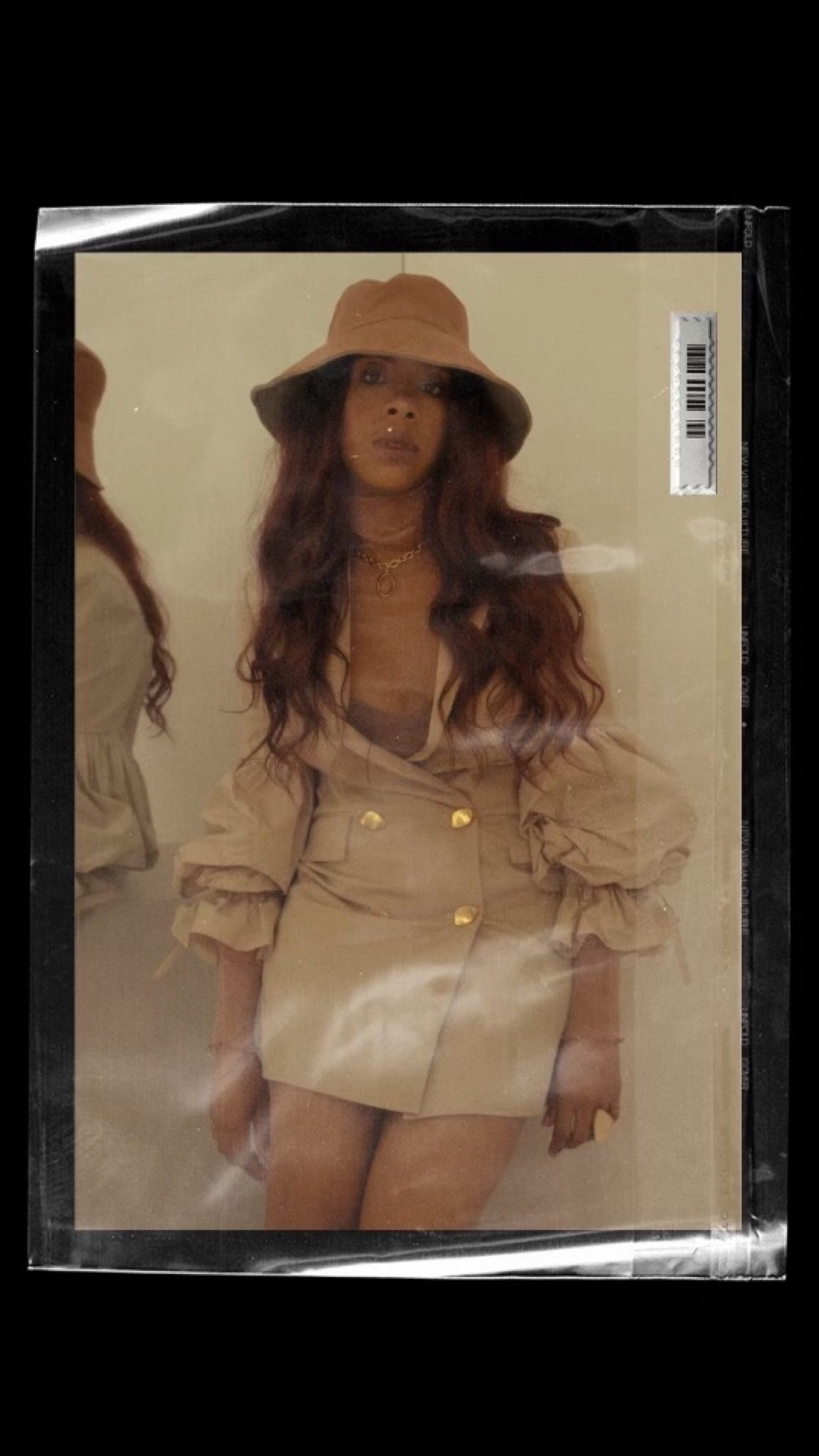
The “4th of July” music video you released before the Car Therapy EP was the first music video shot on Snap Spectacles 3, using the glasses’ augmented reality feature. Who was player one and what was player one watching or being connected to via the now playing side? Whose actual love life are we seeing there?
Player one was Corey Wash, an artist, illustrator, animator, and someone I’ve been friends with for a while and admire. MELO-X was player two – a musician, producer who did the score for Black is King and has just been an undercover force in the music industry for a long time. I’ve just been a fan of their love and admire what they were able to build in such a fleeting culture. So I was like, “They’ll be the perfect couple to play these characters.” It’s about a relationship that was once beautiful, and they’re playing a game so they can remember the good times they had. So when you see the end of the video and she’s alone, she’s waking up and the game is over. The avatar is me looking into their relationship.
How does Car Therapy compare to the work you’ve made in other spaces?
I feel like my sound is more condensed and solidified now. I think when people come to see BOSCO, they know what they’re expecting. But I also feel like that has kind of put me in a box. I made a post about this recently, but I feel like I used to be a lot more exploratory, and now, for a Black musician, a Black woman musician, it’s a little bit more accepted to explore different genres. I haven’t always just been R&B – I like blues, I like jazz, and I like so many other things that really weren’t welcoming or that they didn’t know how to market or whatever. I’m finding myself at a crossroads where it’s like, “people know me for this, but what’s that other part that I’ve got tucked away that I want to explore again?” I’ve built whatever the hell this is, but I’m back to the studious part of my career where I want to do a whole different vibe and just see where that takes me.
As the artist I’m sure you think, “My portfolio is real cute. But I’m not the same anymore. My art isn’t the same anymore.”
That’s exactly how I feel. I don’t know if it’s because I had a child. But I’ve been easing towards this for a while, and now that I had my little one it just made the push a little bit more, pushing towards the evolution of what it is that I’m striving to get to. Whether it’s visually or sonically, I’m just being kind of open right now.
Credits
- Text: Jeffrey Martín
- Photography: Wynton Harvey
- Photo Editor: Exquisite Eye Studios
- Fashion: C&D
- Fashion Assistant: Racqùelle Bella
- Hair: Jerrian Sari
- MUA: Jayna Alford
- Production: Von Allen
- Direction: Victorian Prime
- Set Design: Victorian Prime
